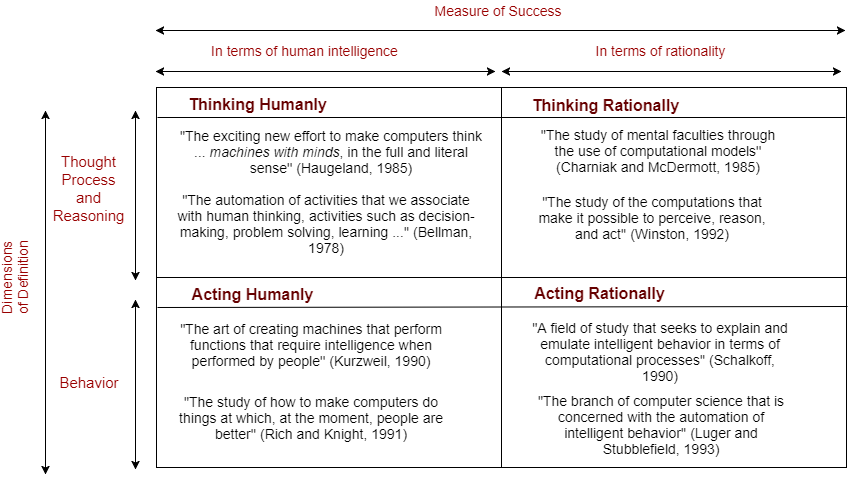The various definition have been grouped into 4 different dimensions or schools of thought, based on what we want our A.I. to achieve and how we measure its success. As can be seen in the diagram, the definitions set the goal of Artificial Intelligence, either based on thought process and reasoning(top row), or based on behavior(bottom row). Further, the definitions are also grouped in terms of how we measure the success of Artificial Intelligence. This can be either in terms of human intelligence(left column), or against the idea of rationality or ideal concept of intelligence. The difference in human thinking and rationality is that, the former must be an empirical science, involving hypothesis and experimental confirmation and the latter involves a combination of mathematics and engineering.....more


